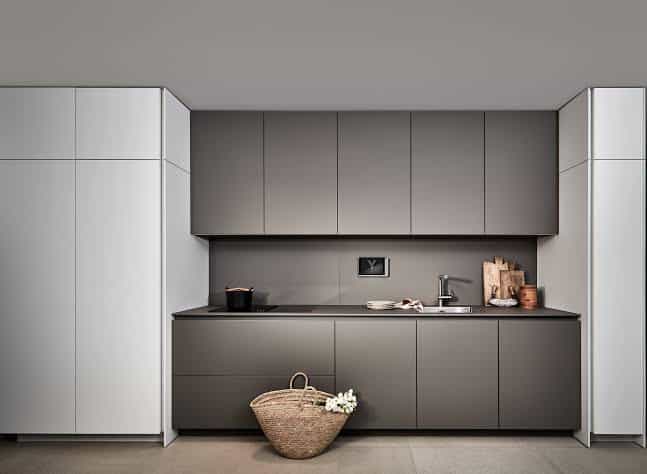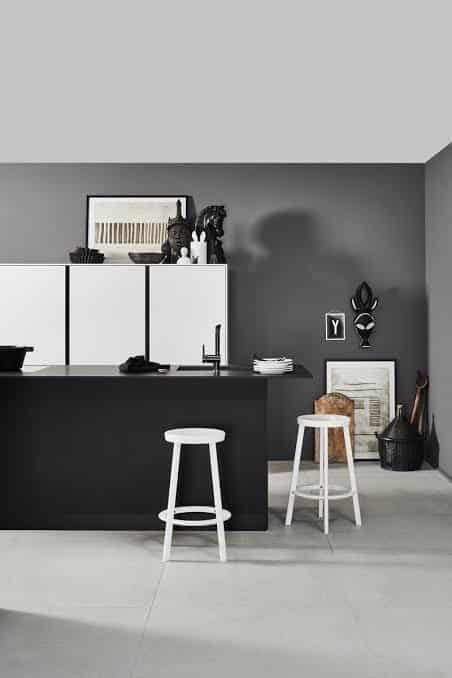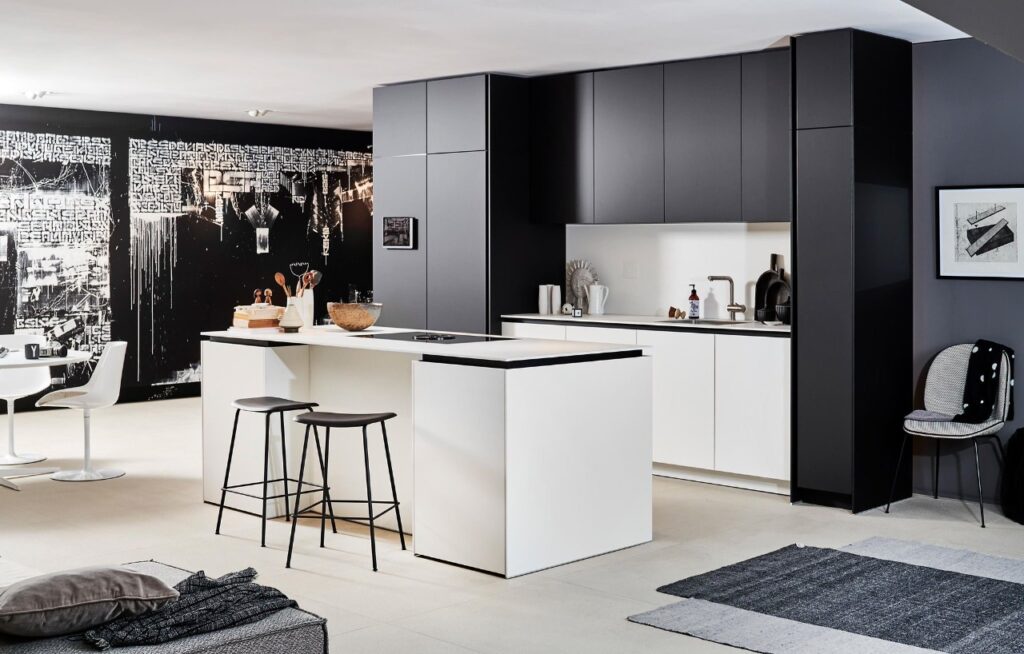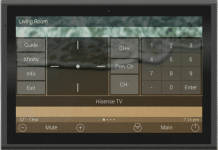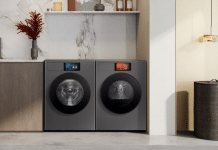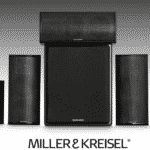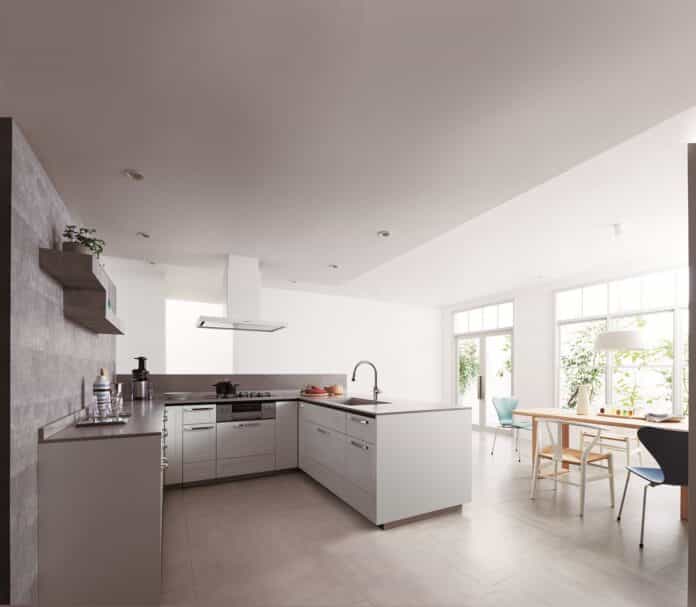
Gone are those days when your cooking plans used to get scrapped at the last moment after realizing that your fridge is running out of ingredients! Smart kitchen appliances, today, act like responsible partners who never fail to inform, before it is too late, what all needs to be stocked in the refrigerator, for executing a sudden cooking plan!
A kitchen is often considered the heart of a house. This is where our tummy-satisfying and mood-uplifting delicacies are prepared. In Indian households, cooking has always been an inevitable daily chore, carried out either by members of the family or by the house culinarians. However, after the pandemic hit the world, even the working professionals, living in nuclear families, were compelled to step into the kitchen on a regular basis due to the absence of house-helps.

Supporting the above statement, Sukriti Sharrma, Partner, plüsch, says, “The market for smart kitchens and tech kitchens is growing in India. Post Covid – 19 a lot of family members have taken to cooking and using the kitchen spaces themselves so they are now keen on adding high tech features to the kitchens”. A desire for having a kitchen with digitally controllable appliances has been there among the new-generation homeowners for quite a long time. But, the Indian masses have started understanding the necessity of smart kitchens that feature IoT enabled smart appliances while adapting to the WFH(Work From Home) culture that became prevalent since the pandemic hit the world and all of us got locked down in our homes.
“In every situation we need to learn and adapt and move forward. The pandemic changed the way we work making working from home a permanent solution for a lot of companies. Due to which individuals are investing in bigger houses, better interiors to make it a sanctuary where they will be spending more of their time together”, adds Sukriti.

Speaking on the pandemic effects, Shweta Rangra-Kale, Head – Content & Marketing Strategy, Häfele India Pvt. Ltd., conveys, “The pandemic gave rise to a forced trend globally called “cocooning”. Cocooning means huddling up in a given space and making sure that you have all that you need within that space. As a result of cocooning, homes are being looked at very differently now – they are doubling up as schools, playgrounds, offices, theatres and whatnot. The need for enhanced convenience within homes is being felt now like never before. People want to change their homes to improve the living quality within them. While the basic level changes can be of the nature of space-optimizing solutions within kitchens and other areas of the home where you get maximum storage and utility space; the next level will be smart homes and kitchens where everything is well connected and can be managed through a single interface. So when it comes to home improvement and development, the pandemic has been one of the strongest triggers ever seen”.

Further explaining the aftermath of the pandemic, Rahul Thakkar, General Manager- Housing Business- India Operations, Panasonic Life Solutions India Pvt. Ltd, says, “The COVID-19 pandemic has had both positive and negative impacts on the smart home appliance market. The demand for smart devices such as refrigerators, washing machines, and others is increasing due to the COVID-19 pandemic as the majority of the population work from home, so more time is spent at home, requiring multiple devices to perform tasks compared to traditional methods that can do it quickly. Despite the coronavirus pandemic, most people focus on basic equipment. Therefore, such consumer sentiment is expected to hurt the retail sector and the smart equipment market. In addition, due to the COVID-19 pandemic, the production capacity of all regions affected by the cessation of production and product delivery from producers to end-users has decreased drastically”.
In the “Work From Home” scenario, managing office work and kitchen work simultaneously is a tough task indeed! Imagine one super busy Monday afternoon, when you rush to the refrigerator to get yourself some eggs for a quick lunch, open the door and remember that eggs got over a couple of days back and you forgot to put it on your shopping list! This is when, one wishes to have a smart refrigerator that can send notifications to your smartphone, on what recently got over or is about to get over. A smart refrigerator can also prepare a grocery list for you. In India, smart kitchens mostly comprise refrigerators, ovens, hoods, blenders, coffee makers, cookers and dishwashers, that can be connected to wireless Internet or Bluetooth and remotely controlled/monitored through smartphones or tablets.
In homes with digital assistants like Alexa and Google Assistant, one can access kitchen appliances through the smart speaker system. For example, you can ask one of these assistants to read out recipes for you, like a cooperating and non-demanding cooking guide, who is ready to repeat the recipe as many times as you want it to, without any complaints. Offering utmost convenience, a chance to multitask and guidance, smart kitchens are able to make both cooking and cleaning easier yet quicker.
“The growth of disposable income, rapid urbanization, technological advances in household appliances and products, and the easy availability of these products in both developed and developing countries, are the main factors driving sales growth in the smart kitchen segment. Smart kitchen apparatuses are items intended to save energy and time. Their essential objective is to be both harmless to the ecosystem and useful. They’re a blend of advancements, smart plans, and eco-accommodating materials. Cooking is becoming more well known, and gear is often utilized for an assortment of capacities. With the fast development of innovation, kitchen thought has undergone a considerable change, with a solid spotlight on upgrading productivity in the kitchen and bringing down the time spent cleaning and cooking”, affirms Rahul.
Market Scenario:
Numerous surveys say the smart kitchen appliances market lies largely untapped in India with many households yet to switch to smart kitchen appliances. Elaborating on the current market for smart kitchens in India, Shweta says, “Smart Kitchens is a subset of the holistic smart homes concept and comprises of a unique solution where all the electric and electronic components of a kitchen, like the appliances, lighting etc., are integrated into a single interface that can be managed through a phone application. Since such a solution needs a common interface that can link these components together, the concept of the smart kitchen is still at a very nascent stage in India owing to the limited interface solution providers in the country. There is still a national player missing that can provide a holistic smart solution to Indian customers, however, we see small players emerging in different parts of the country. Smart homes and smart kitchens need a rounded technological evolution that will take time before the concept firmly sets in and is aggressively used by Indians. Currently, there are facets of the home and kitchen that can be called “smart” like an intelligent fridge that tells you the stock levels of the consumable groceries stored within it or a digital lock that captures records of all access instances to a home. But the integration of all such devices into one interface can be a challenge as these devices may come from different brands and the protocols used to design them may or may not be compatible with a single interface that can link them together. International brands are working on creating solutions that will be compatible for a holistic smart integration and this is happening as we speak”. “Currently the smart home and kitchen trend is native to the larger metros of the country as the IT infrastructure in these cities is more evolved than that of smaller towns or Tier-II cities”, adds Shweta.
However, research says, smart kitchen appliances in India are estimated to increase revenue at a cumulative annual growth rate (CAGR) of 11.8% and unit shipments are expected to increase at a CAGR of 10.5% during FY2019-FY2026. With rapid technological advancements and innovations taking place at a considerably brisk pace, the concept of kitchens has undergone a radical change. Today, kitchens are more about increasing efficiency, reducing the time spent in cleaning and cooking. Kitchen appliances, these days, are enhanced with smart sensors and IoT enabled technology, which is highly anticipated to drive market growth in the coming years. “IoT forms the very crux of smart kitchens. To be able to connect all the gadgets, devices and components within your kitchen to a single interface, you need a common platform that is enabled by IoT technology. And this is where the main evolution lies and will be the future for homes”, says Shweta.
Smart technology is slowly and steadily becoming the key feature for numerous kitchen appliances ranging from dishwashers to refrigerators, providing customizable functionalities as per the preference and convenience of the users. Also, these highly sustainable smart appliances immensely contribute to energy conservation, which eventually leads to lower electricity bills.
The United States is a growing market for smart kitchen appliances in North America. The factors promoting the market growth in the USA, are the higher technological acceptance and purchasing capacity of the consumers. Research says, North America held the highest share in 2020, but Asia Pacific is inferred to grow at the highest CAGR over 2021- 2026.
Technological Aid:
A network of physical objects/appliances embedded with electronics, software, sensor and connectivity to allow objects to exchange data with manufacturers, operators and connected devices, IoT(The Internet of Things) seamlessly connects everyday objects like smartphones, sensors and actuators to the internet, where the devices are smartly linked together initiating communication between things, users and between themselves as well. Also, with the help of IoT, objects get easily sensed and controlled remotely across the existing network infrastructure. Providing accuracy and comfort, IoT allows the user to avail connectivity from anywhere and anytime. Researchers are currently working on how to enhance the internet-oriented approach with a semantic oriented method, which are needed to develop practical, complex IoT applications.
“The integration of devices, lighting and appliances into a single interface has already been seen and tested. The next level of solution integration that will soon be seen is that of furniture. Global players are now making smart fittings for furniture units like drawers, overhead cabinets, sliding doors etc. which will be intelligent and compatible with IoT technologies. This means that very soon, you can also open the drawer in your kitchen through your phone app while you are walking towards it”, says Shweta.
“Unsurprisingly, the household Internet of Things revolution could have started in the kitchen, and it is already happening. Smart gadgets and gadgets have started to invade the kitchen to make our shopping and cooking life easier. So, it’s no wonder that the kitchen is quickly becoming a hot trend in the era of the Internet of Things. Businesses big and small are starting to use apps, the cloud, sensors, and additional technologies to make kitchens more agile and skilled. Popular brands are considering creating tags. Smart fridges let you scan receipts after shopping to keep an inventory of your items and notify you when items are out of stock or out of stock. It can offer recipes based on stored content, and if you wish to exchange an item, you can order online using the refrigerator’s LCD screen. Now more and more companies are focusing on kitchen utensils, which is the latest trend”, adds Rahul.
Way Forward:
“Safety is one aspect in the kitchen which is very crucial. For example, today, automatic stoves are available in the market, which automatically shut off in case the stove has been on for too long. There is a pyrolytic cleaning feature in the ovens where the oven locks itself to heat up and clean the residue in the oven. Furthermore, there are smart fridges that can tell you details inside the fridge. You can save your customized coffee in your coffee machine settings so that you get the perfect brew every day. The kitchen cabinets can be automated to open and close without you having to bend lower or reach higher. You can even have an automatic vacuum attached to the skirting of the kitchen. There are many ways in which technology is contributing to the next-gen solutions”, says Sukriti.
“Today with more nuclear families where both the wife and the husband have full-time jobs, convenience is a luxury. That is the backbone of the smart kitchen industry. I believe, the more appliances and technology make life simpler the more people will invest in it”, concludes Sukriti.



